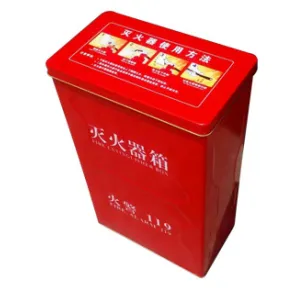-
 8613931787312
8613931787312 -
 Botou Industrial Zone on the east side of National Highway 104, Botou City, Hebei Province
Botou Industrial Zone on the east side of National Highway 104, Botou City, Hebei Province
- Afrikaans
- Albanian
- Amharic
- Arabic
- Armenian
- Azerbaijani
- Basque
- Belarusian
- Bengali
- Bosnian
- Bulgarian
- Catalan
- Cebuano
- Corsican
- Croatian
- Czech
- Danish
- Dutch
- English
- Esperanto
- Estonian
- Finnish
- French
- Frisian
- Galician
- Georgian
- German
- Greek
- Gujarati
- haitian_creole
- hausa
- hawaiian
- Hebrew
- Hindi
- Miao
- Hungarian
- Icelandic
- igbo
- Indonesian
- irish
- Italian
- Japanese
- Javanese
- Kannada
- kazakh
- Khmer
- Rwandese
- Korean
- Kurdish
- Kyrgyz
- Lao
- Latin
- Latvian
- Lithuanian
- Luxembourgish
- Macedonian
- Malgashi
- Malay
- Malayalam
- Maltese
- Maori
- Marathi
- Mongolian
- Myanmar
- Nepali
- Norwegian
- Norwegian
- Occitan
- Pashto
- Persian
- Polish
- Portuguese
- Punjabi
- Romanian
- Russian
- Samoan
- scottish-gaelic
- Serbian
- Sesotho
- Shona
- Sindhi
- Sinhala
- Slovak
- Slovenian
- Somali
- Spanish
- Sundanese
- Swahili
- Swedish
- Tagalog
- Tajik
- Tamil
- Tatar
- Telugu
- Thai
- Turkish
- Turkmen
- Ukrainian
- Urdu
- Uighur
- Uzbek
- Vietnamese
- Welsh
- Bantu
- Yiddish
- Yoruba
- Zulu
Jan . 30, 2025 06:15
Back to list
1.20-30 liter steel drum fully automatic welding machine
Steel drums, also known as steel barrels, have been a cornerstone in the oil industry for decades. They offer a robust solution for storing and transporting oil, boasting a range of advantages that make them indispensable. These containers are not only durable but also versatile, and they remain critically relevant in both industrial and commercial contexts.
In terms of product-specific advantages, steel drums for oil stand out due to their recycling potential. As the world shifts towards sustainable practices, these drums can be recycled and repurposed, reducing waste and fostering an environmentally-friendly approach to industry operations. This aspect not only benefits the environment but also aligns with corporate responsibility goals, distinguishing companies that opt for steel drums as forward-thinking and eco-conscious. Pricing considerations also favor steel drums. While the initial investment may be higher compared to some alternatives, the longevity and durability of steel drums ensure favorable total cost of ownership. Being reusable and highly durable, they offer reduced costs over time due to less frequent replacement and lower maintenance requirements. This cost efficiency is particularly advantageous for burgeoning businesses and established corporations alike, seeking to optimize operational budgets without compromising on quality or safety. Technological advancements continue to play a role in enhancing the functionality of steel drums. Smart drum technologies, such as RFID tracking and sensor-aided monitoring, provide real-time data on drum conditions and contents, streamlining inventory management and boosting operational efficiency. Such integrations not only modernize logistics but also equip businesses with vital data insights for driving performance improvements. Ultimately, the decision to employ steel drums for oil reflects a commitment to quality, safety, and sustainability. Their proven reliability, coupled with the benefits of modern enhancements, positions them as the industry standard for oil storage solutions. Their enduring popularity is a testament to their value, and their continued evolution ensures they meet the demands of a dynamic industrial landscape.


In terms of product-specific advantages, steel drums for oil stand out due to their recycling potential. As the world shifts towards sustainable practices, these drums can be recycled and repurposed, reducing waste and fostering an environmentally-friendly approach to industry operations. This aspect not only benefits the environment but also aligns with corporate responsibility goals, distinguishing companies that opt for steel drums as forward-thinking and eco-conscious. Pricing considerations also favor steel drums. While the initial investment may be higher compared to some alternatives, the longevity and durability of steel drums ensure favorable total cost of ownership. Being reusable and highly durable, they offer reduced costs over time due to less frequent replacement and lower maintenance requirements. This cost efficiency is particularly advantageous for burgeoning businesses and established corporations alike, seeking to optimize operational budgets without compromising on quality or safety. Technological advancements continue to play a role in enhancing the functionality of steel drums. Smart drum technologies, such as RFID tracking and sensor-aided monitoring, provide real-time data on drum conditions and contents, streamlining inventory management and boosting operational efficiency. Such integrations not only modernize logistics but also equip businesses with vital data insights for driving performance improvements. Ultimately, the decision to employ steel drums for oil reflects a commitment to quality, safety, and sustainability. Their proven reliability, coupled with the benefits of modern enhancements, positions them as the industry standard for oil storage solutions. Their enduring popularity is a testament to their value, and their continued evolution ensures they meet the demands of a dynamic industrial landscape.
Prev:
Latest News
-
The Rise of Laser Welding in Global Manufacturing: Spotlight on China’s Competitive EdgeNewsJun.05,2025
-
The Power of Precision: Exploring the Role of Automatic Seam Welding Machines in Modern ManufacturingNewsJun.05,2025
-
The Essential Guide to Can Welding Machines: Revolutionizing the Packaging IndustryNewsJun.05,2025
-
Resistance Welding Equipment: A Smart Investment for Industrial ManufacturingNewsJun.05,2025
-
Precision Welding for Modern Manufacturing: The Rise of Automatic Seam Welding MachinesNewsJun.05,2025
-
Laser Welding for Stainless Steel: The Precision Edge in Modern Metal FabricationNewsJun.05,2025
-
The Modern Evolution of Barrel Production: Technology, Machines, and Market PricingNewsMay.22,2025
related products
-
 Pneumatic Handle Welding MachineSep . 13, 2024
Pneumatic Handle Welding MachineSep . 13, 2024 -
 Fully Automatic Kaiping Production LineOct . 17, 2024
Fully Automatic Kaiping Production LineOct . 17, 2024 -
 Fully Automatic Metal Bucket Lifting HeadphonesSep . 14, 2024
Fully Automatic Metal Bucket Lifting HeadphonesSep . 14, 2024

